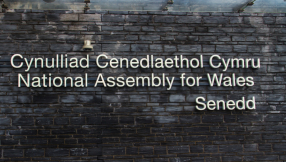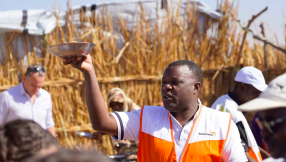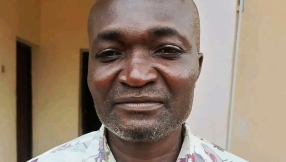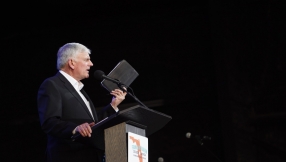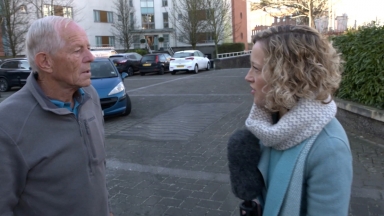
Titus Trust, the evangelical camps organisation whose forerunner body was chaired by serial abuser John Smyth, has apologised for sending "mixed messages" about its links to him.
The apology comes after the publication today of the "Independent Culture Review" it commissioned from Christian safeguarding charity, Thirtyone:eight.
The Trust, whose camps are exclusively for children from fee-paying independent schools, commissioned the report after facing criticism for its handling of the Smyth scandal and the subsequent abuse scandal around Rev Jonathan Fletcher, former vicar of Emmanuel Church Wimbledon.
In a statement, the Trust said: "The report considers some of the ways in which we have responded to the revelation of the abuse perpetrated by John Smyth.
"In particular, it highlights ways in which we have been inconsistent in speaking about the organic connections between the camps that we run today and the camps that ran before the Titus Trust came into being.
"We acknowledge we have given mixed messages about this legacy. We apologise for this and apologise to the victims and survivors of John Smyth's abuse for ways in which this has compounded their pain."
The Titus Trust, which in 1997 replaced the Iwerne Trust which Smyth chaired in the 1970s, also apologised to volunteers on its camps whose experience of its work has been "difficult or painful".
Its statement said: "We apologise to those volunteers who have given their time and energy to serve in the work of the Trust and whose experience has been difficult or painful.
"We repent of the ways in which we have failed to model the humble servant leadership of the Lord Jesus, and for ways in which this has caused us to be poor witnesses to Him."
Among the recommendations in the Thirtyone:eight report are that women should become more involved in decision-making and that the Trust should aim for greater diversity among its staff and volunteers.
The review said that one outcome of the lack of diversity is "a uniformity of thought amongst staff and volunteers" which increases "safeguarding risks".
Thirtyone:eight reported: "The single focus of the Trust on independent boarding and day schools has meant the Trust and its camps mirror the exclusive nature of these schools and reflect a lack of diversity in the children and young people who attend the camps and in its leaders.
"The lack of an open recruitment practice for staff and volunteers further compounds and maintains this lack of diversity.
"While not necessarily a risk on its own, it could not be regarded as best practice and this narrow focus has impacted on the culture of the Trust in several ways which have increased certain safeguarding risks."
It found that "one outcome is a uniformity of thought amongst staff and volunteers which has created a culture that risks being unable to fully see problems in its thinking and where leaders are less likely to be challenged by different perspectives or diverse views".
"This has increased the risk that people may be less willing to share their concerns," the report found.
It also highlighted "a largely uncritical acceptance of the attitudes and behaviours of male leaders" which "has had a negative impact within the camps on how women are seen by some men, how some women view themselves and their abilities, and crucially, in the context of safeguarding, on the confidence of some women to speak into critical issues or raise concerns".
Thirtyone:eight acknowledges that the Trust has "taken deliberate steps to involve women in decision-making and to be more active in including and valuing female perspectives, but there is a historic legacy here which will require continued deliberate effort to redress".
The report also found that the "greater levels of authority, respect and value" placed on those who held Bible teaching roles have "reinforced a sense of hierarchy in the leadership of the camps and contributed to imbalances in power, influence, and control".
It continued: "It is generally accepted that there is a structure and hierarchy in place across the camps, and although this is seen as necessary in the context of running busy and well organised holidays, there is a sense that with this comes an attitude that some people and roles are more highly valued than others, that questioning is more acceptable from some than others, and that some could feel intimidated.
"This contributes to increasing the risk of abuse happening and not being reported on camps, and of abuse being tolerated."
The report explored the "very clear links" between the Trust and the broader Christian community, particularly the Conservative Evangelical Church in England "that are based on and driven by a shared set of beliefs".
"This is a symbiotic relationship, which to some degree reinforces the theology and cultural views on the camps, leading to a greater risk of a narrowness of thinking or a lack of diversity among its leaders," the report said.
It found that "within this context, it is more likely that concerning cultural norms and unhealthy or harmful individual behaviours are missed, and that opportunities are created to develop relationships with individuals outside the activities of the Trust which has the potential to increase the risk for future grooming or abuse".
It added that "the value of the patronage of some of the more influential and powerful leaders within the wider Evangelical community could be seen to have been one inhibitor to disclosing abuse and why some people may not have been called out about behaviour as they should have been".
The Church of England is due next year to publish its own report into the Smyth scandal, which involved the then prominent lawyer beating boys and young men in the garden shed of his Winchester home in the 1970s and early 1980s.
Keith Makin, a former director of social services, is leading the CofE probe into the scandal, which various of its clergy have known about since the 1980s.










